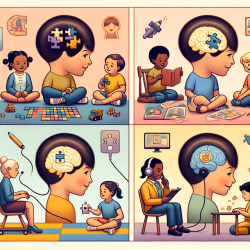Introduction
In the realm of healthcare, providing equitable care to patients with neurodevelopmental disabilities (NDD) remains a significant challenge. Research indicates that individuals with NDD often face barriers to receiving adequate medical care due to uncooperative behaviors during medical procedures and a lack of preparation among medical professionals (Boulet et al., 2009; Havercamp & Scott, 2015). A recent study published in the Journal of Autism and Developmental Disorders explores the efficacy of virtual training programs in equipping medical students with behavioral skills to enhance patient cooperation and comfort during medical examinations.
The Study and Its Findings
The study, "Virtual Training of Medical Students to Promote the Comfort and Cooperation of Patients with Neurodevelopmental Disabilities," involved seven medical students who underwent behavioral skills training (BST) via an online platform. The training focused on teaching students behavior management strategies that could be seamlessly integrated into routine medical exams. The results were promising, showing a marked improvement in the students' ability to implement these strategies both in role-play scenarios and with actual patients.
Key outcomes of the study include:
- Increased correct implementation of behavior management strategies during medical exams.
- High retention of skills two weeks post-training.
- Positive feedback from participants regarding the training's applicability and effectiveness.
Implications for Practitioners
For practitioners in the field of speech-language pathology and related disciplines, the study underscores the potential of virtual training programs to enhance professional competencies. By adopting similar training methodologies, practitioners can improve their ability to manage patient behaviors effectively, thereby increasing patient cooperation and reducing the need for restraints or sedation during medical procedures.
Implementing such training programs can lead to:
- Better patient outcomes through improved cooperation and comfort during medical exams.
- Increased confidence among practitioners in handling patients with NDD.
- Enhanced accessibility and cost-effectiveness of training, making it feasible for widespread adoption.
Encouraging Further Research
While the study provides valuable insights, it also highlights the need for further research to explore the long-term impact of virtual training on patient outcomes and healthcare practices. Practitioners are encouraged to engage in ongoing research to refine and expand the application of behavior management strategies in clinical settings.
To read the original research paper, please follow this link: Virtual Training of Medical Students to Promote the Comfort and Cooperation of Patients with Neurodevelopmental Disabilities.










